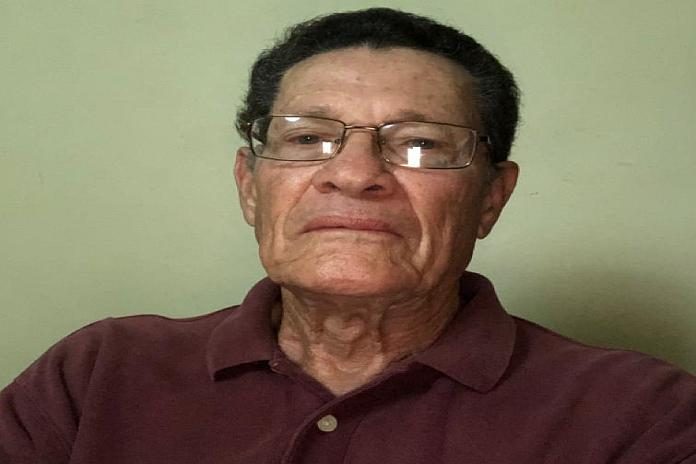By Rupert Sorhaindo
The election of a secretary-general for the Organization of American States (OAS) is scheduled for March 2020, when members of the permanent council of that hemispheric body will elect one of the three candidates who have been nominated for that influential position: the incumbent Luis Almagro, Hugo de Zela of Peru, and Maria Fernanda Espinoza of Ecuador.
Almagro is backed by the United States of America and some of its right-wing allies in Latin America; and, de Zela, former ambassador of Peru to the United States of America and former chief of staff of the OAS secretariat, is believed to have been entered in the contest as a distraction that could facilitate the election of Almagro. The other candidate Espinoza is a former Chancellor of Ecuador; former president of the UN Security Council; former minister of foreign affairs, minister of defense and minister of heritage.
Her candidacy has been promoted by Antigua and Barbuda; and St Vincent and the Grenadines and a number of other CARICOM states that have strongly opposed the manner in which Almagro has been conducting the affairs of that hemispheric organization. They have expressed concerns that he “has sought to use the OAS as an international platform for advocating his personal positions and promoting the agenda of some governments”.
The March 2020, contest sparked an intense, high stake political ‘chess game’ with the 14 member CARICOM group (potential pawns) being pitted against some of the more powerful and right-wing governments (puppet masters) in the 35 member OAS. The CARICOM block is therefore only four votes short of an outright majority in the OAS permanent council. And that reality would certainly not be lost on those governments who would wish to see Almagro returned as secretary-general of the organization.
The Venezuelan ‘crisis’ that erupted in January 2019, when opposition legislator Juan Guaido declared himself interim president of the Bolivarian Republic of Venezuela and was immediately recognized by the OAS (contrary to the Charter of the organization), United States of America and some of its ideological allies evoked strong reaction from CARICOM. And following the imposition of sanctions and threats of the use of force to remove Nicolas Maduro from office, CARICOM objected to the interventionist posturing of the OAS and continued to promote the use of dialogue as the only acceptable means of resolving the ‘crisis’.
The United States president, in an ‘obvious attempt at creating division’ within CARICOM to promote his administration’s interest in Venezuela, Cuba, Nicaragua, and the wider hemisphere, invited a select group of Caribbean leaders to his Mar-a-Lago estate in Florida. And following that meeting, some of the countries represented that had been supportive of CARICOM’s earlier stance changed their position to either denounce Maduro or recognize Guaido as interim president of Venezuela.
The campaign leading to the December 6, general elections in Dominica was punctuated with charges of OAS and US regime change manoeuvers, purportedly albeit ironically, in the interest of preserving democracy.
In one, highly publicized instance, an opposition spokesman at a public meeting was not shy to announce that the prime minister of Dominica would “suffer the same fate as Evo Morales of Bolivia” (who was forced to resign as president and flee to Mexico after what is widely regarded as an OAS/US-engineered regime change event, using electoral fraud as an excuse). In fact, that opposition spokesman added that “the OAS would be called on to assist if it was shown that the election was stolen.”
In late December, CARICOM was once again in the cross-hairs of the OAS and US, when in a debate on a resolution relating to Bolivia at an OAS permanent council meeting, the US ambassador launched a scathing attack on CARICOM for its support of a resolution condemning the Bolivian coup regime that had replaced Morales. The humiliating defeat for Almagro, the US, and its allies exposed the ‘power’ of the CARICOM voting block.
With the election of OAS secretary-general approaching and the prospect of a change in direction for the organization appearing as a real possibility, it is not surprising that efforts would be redoubled to further divide the region. The US Secretary of State Mike Pompeo announced that he has invited some of the region’s foreign ministers to a meeting in Jamaica on January 22.
However, the chairperson of CARICOM, Mia Mottley of Barbados reacted very strongly to what she has characterized as an attempt by the US to divide the Caribbean region. She stated that “as chairman of CARICOM, it is impossible for me to agree that my foreign minister should attend a meeting with anyone, to which members of CARICOM are not invited. If some are invited and not all, then it is an attempt to divide the region”.
As expected, the CARICOM chairman’s position was endorsed by the prime ministers of Trinidad and Tobago, Grenada, Antigua and Barbuda and St Vincent and the Grenadines.
However, representatives from The Bahamas, Haiti, Dominican Republic, Jamaica and Saint Lucia, met the expectation of US Secretary of State. It remains to be seen whether those members of CARICOM will succumb to the ‘economic carrots’ that Pompeo will certainly dangle before them in Kingston in a ‘quid quo pro bargain’, and thereby deny CARICOM and other members the prospect of having a highly qualified diplomat in the person of Espinoza chart an alternative path for the OAS during the next four years.






